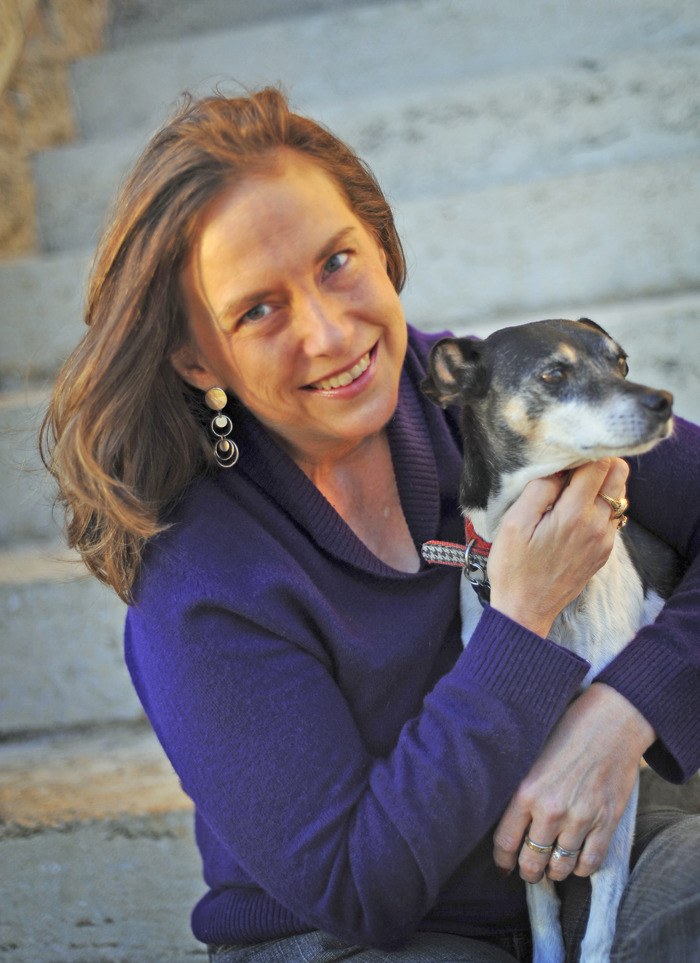Be careful about volunteering your time in an animal shelter, Kelley Durham says — you may wind up working at one.
Wry advice from a former shelter volunteer who last month moved from Texas to become the first executive director of Auburn Valley Humane Society’s new animal shelter.
Durham has hit the ground running, tearing through five pages of front-and-back shelter must-dos, weeks before the shelter opens Jan. 1 in its refurbished home on A Street Southeast.
As executive director, Durham said, she won’t be working much with the animals themselves; instead, she’ll be ensuring that staff members and volunteers have the resources they need to do their jobs.
“My passion is really about working with those people,” Durham said. “They have a dedication and a resourcefulness that I have never seen in any other industries, and I have worked in a lot of industries and sat on a lot of boards of non-profits.”
Working amid daily life-and-death situations at shelters, Durham said, fills people with a passion to keep the animals alive.
“In animal shelters you have the homeless animals going here, and if somebody doesn’t adopt them, the outcome for those animals is not a good one,” Durham said.
As executive director of a small operation, Durham said, she’ll wear more hats than a director of a larger organization would. Meaning that along with normal executive functions like overseeing staff and hiring and fundraising, she probably participate in operations, too.
“A big part of my job will also be to reach out to the community so that the people who want to become involved do become involved. It’s about reaching out to the community to educate those who don’t know we’re here. It’s about reaching out and educating those that don’t understand our role and what resources we have so that we can help. And it’s about being an advocate for the animals, both to the individuals and to the government, through legislation and through enforcement,” Durham said.
One of her responsibilities in partnership with the City of Auburn is to increase the number of animal licenses issued.
“It’s not about collecting revenue, it’s about identification, so that when that animal comes into the facility, there is a way to identify the animal and get it back home. It’s the animal’s ticket home,” Durham said.
Durham comes to Auburn from College Station, Texas, a city of 96,000, 90 miles north of her native Houston, and home of the main campus of Texas A&M University.
While Durham worked in management and in communications with the Internet departments of newspapers, much of her free time she devoted to marketing, fundraising, and handling communications for a shelter in the nearby city of Bryan, Texas.
“I wanted to volunteer doing something that I put my skills to work, but something that I had a passion about,” Durham explained. “And I enjoyed the animals, so it was a good match, Durham said.
Durham has a master’s degree in non-profit administration from the University of Notre Dame and a bachelor’s degree in business, with a concentration in management, from the University of North Dakota in Grand Forks. Her husband, Jeff, is a retired police officer and a retired US Air Force veteran. The couple are avid outdoor enthusiasts.
“I am also very much into dog training, I absolutely love it. We have two long-haired chihuahuas, (Downy and Solo) a Dane mix (Tigger) and a Rotweiler (Sweetpea). Let’s just say that I have to manage my household because not everybody likes everybody else,” Durham laughed.
Auburn, she added, has been a good fit.
“The comments since I got here show that people are obviously excited that Auburn is going to have its own animal shelter,” Durham said. “The people here have been very warm and welcoming. People in this region seem to be very interested in causes and community, in being green, in forward thinking about the future and the environment, and animals are a part of that. Unfortunately, we’ve become sort of a throw-away society, and companion animals have become part of that.”
Durham said she is looking for people who are experienced in animal health kenneling. People who, if they haven’t worked in animal shelters should at least have worked in veterinary clinics and boarding facilities. People, she said, who understand the importance of sanitation and disease control.


